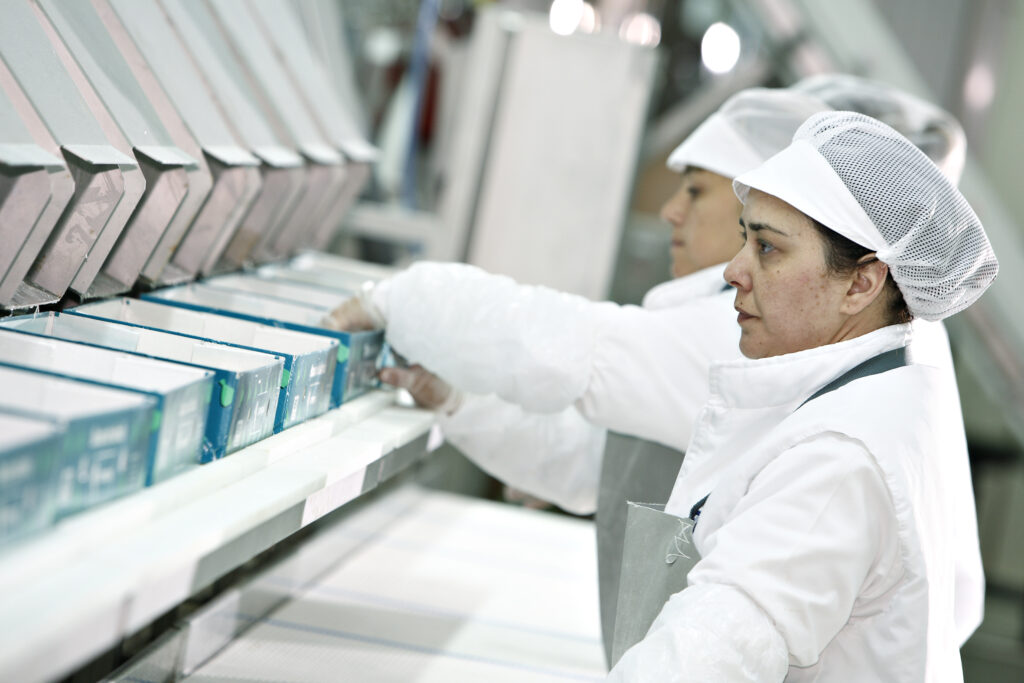Iceland Seafood sells UK business to Danish giant

Iceland Seafood International is to sell its UK operation to the Danish seafood group Espersen.
The salmon and whitefish group said it had finalised its due diligence process and transaction documents are currently being completed for the sale of its loss-making subsidiary.
The news comes as ISI also reports that high salmon prices are having a negative impact on its profitability.
Two previous attempts to sell the Grimsby based business, which employs almost 200 people, late last year and at the start of this year, broke down.
Espersen is seen as a world leader in fish processing with customers in Europe, the United States and Australia. A significant part of its sales are to the UK retail market.
The majority of its products are tailor-made to local markets’ and customers’ needs with salmon, shrimp, cod and haddock among the most frequently used raw materials.
Iceland Seafood said completion of the transaction will take place during September when certain conditions in the transaction documents have been fulfilled. At completion of the transaction, Espersen will own 100% of Iceland Seafood UK.
In addition, the property, equipment, and machinery will be sold from IS UK to Iceland Seafood Barraclough (a 100% owned subsidiary of ISI) at completion and then leased back to IS UK.
Last night’s statement added: “In the case of the property a leasing agreement has been agreed, where the lessee has a purchase option at end of the leasing period.
“In the case of equipment and machinery and equipment a hire purchase agreement has been agreed, where the lessee will get ownership of the assets at the end of the leasing period.
“Asset valuation in ISI balance sheet at the end of June reflects the valuation of these agreements, resulting in total impairment of fixed assets of £7.1m, which is included in the loss from discontinued operations.
“At completion, ISI said it will convert intercompany loans into equity and inject further equity to net out negative equity balance and compensate for operating losses to the end of the year, as agreed between parties.”
The negative impact on ISI’s profit and loss and equity this year until the sale completes is estimated at £15m.
ISI suffers from high salmon prices
Meanwhile, in its results for the first half of 2023, ISI has reported that half year group sales rose by 7% to €222.3m (£191m). Sales slowed down during the second quarter April to June, however, and were 7.6% lower than for the same period in 2022.
Lower sales and a decline in margins, along with higher finance costs, especially in southern Europe, were the main cause for a decline in profits.
The half year net loss was €15.08m (£13m) against a net loss of €2.9m (£2.5m) a year ago.
High salmon prices negatively affected the group’s second quarter results in Ireland and Spain, ISI said, but the price of various whitefish and shellfish species had dropped in recent months, some significantly.
This had led to unusually low margins and inventory write-offs in some instances, which mark the Q2 results especially in southern Europe.

Staff at ISI’s Barcelona facility
CEO Bjarni Ármannsson said: “Q2 was another quarter impacted by high input costs, especially in salmon, but also continued lower prices of whitefish and shellfish.
“Salmon has also reduced in price – naturally, given the seasonality in production. All this amplifies the reduced demand at high prices amongst European consumers, who have been heavily impacted by worsened economic conditions.
“Again, as in Q1, our Argentinian operations didn’t contribute much to our profitability. With adjustments in our inventories, we are loss-making and have reduced our outlook bracket for the year significantly.
He added: “We believe we’ll start to see an increase in demand during winter as prices have adjusted. We still have a positive attitude towards our Christmas season, our most important sales season. We believe our brands and position will deliver good margins and results, especially in Q4.”

